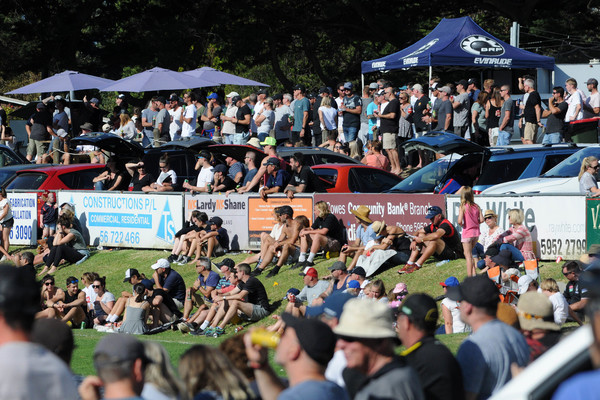All 12 West Gippsland Football Netball Competition clubs have met with AFL Outer East as they explore their options moving forward.
The Gazette understands AFL Outer East presented to the WGFNC clubs last night (Wednesday) and gave them plenty to think about when it comes to their collective future.
The clubs emailed the AFL’s Head of South Eastern Victoria Richard Black last month – in accordance with the rules outlined in the 2019 AFL Victoria Country handbook – to advise him that they would invite AFL Outer East to present to them before ultimately making a call on their future prior to 31 October this year.
The options on the table in front of the clubs include: forming a new entity and going it alone as their own, separate competition away from AFL Gippsland; disaffiliating from AFL Victoria, creating a new league and going it alone; self-governing with an affiliation agreement with AFL Gippsland; maintaining the status quo; or entering into discussions with AFL Outer East – where they could be administered as an independent competition under the current West Gippsland model for an extended period of time.
AFL Outer East has a stable commission and staff base, with the vast majority of those having extensive experience in community football and netball throughout the local area.
The region is self-sufficient, with all its clubs affiliated and competitions managed under the one model.
While the current AFL Outer East model consists of the Premier, Division 1, and Division 2 tiers, it’s important to note that – should the West Gippsland clubs make the call to join the region – they would form an independent competition that wouldn’t be part of the promotion-relegation model.
Should the West Gippsland clubs go down the Outer East path, they would draft their own collective constitution and the Gazette understands they would be offered an extended period in which the competition would be left to stabilise.
The want of the 12 West Gippsland clubs to control their own destiny is a huge reason why they’ve chosen to explore all their options moving forward.
It is understood that, should the Outer East path be pursued, a full-time manager of the West Gippsland competition would be appointed and he or she would report to Outer East region general manager Aaron Bailey and, ultimately, the commission.
The clubs would also be presented with the opportunity to develop a strategic direction at the beginning and end of their agreed period of stabilisation.
It’s understood the Outer East’s media, finance, commercial, netball, and umpiring staff would service the West Gippsland clubs, but – again – they would form a separate stand-alone entity to the rest of the Outer East’s divisions.
The Gazette understands junior pathways, netball, and new club development would all be high priorities for the Outer East’s strategic plan for the future.
Netball and female participation is a huge area of focus in the Outer East’s strategic planning, with Outer East containing more female participants and teams in its region than male.
Inverloch Kongwak president Peter Butcher recently told the Gazette that stability is one thing he felt the clubs have never had under AFL Gippsland, and that’s the guiding principle behind why the clubs are looking to take their future into their own hands.
The latest development comes hot off the heels of boutique strategy consulting firm ColganBauer calling for submissions from all over Gippsland into its highly-publicised ‘G25’ independent review.
The G25 review – or the Gippsland 2025 Strategic Plan – has been driven by AFL Victoria and is backed by the sport’s governing body.
According to correspondence sent to the Gazette, Richard Black, and AFL Victoria’s country football manager Sophie Williams in late July last year by then AFL Gippsland region general manager Ben Joske, the plan was created “with a view to looking beyond regional commission boundaries and serving as a vision piece for Gippsland and bordering commissions”.
That correspondence quoted AFL Victoria head Rick Bell as saying: “G25 will examine competition structures to ensure they can cater for future population patterns in Gippsland and surrounding areas, encourage competition equalisation and consider geographic and economic factors currently restricting and burdening some country football clubs and leagues.
“In addition to short-term solutions, the plan will take a long-term view of the structure of football in the entire Gippsland region and surrounding areas to providing a framework up to 2025 and beyond.”
In his role as Head of South Eastern Victoria, which was created in March this year, Black oversees both the Gippsland and South East regions.
On 8 May, it was announced that the AFL South East regional commission had been removed – almost exactly a year since the dumping of the AFL Gippsland commission.
The G25 interim report was released back in March, and left many stunned.
The 86-page report made a series of draft recommendations but has been criticised in some corners for its lack of focus on the premier league in the Gippsland region, the Gippsland League.








